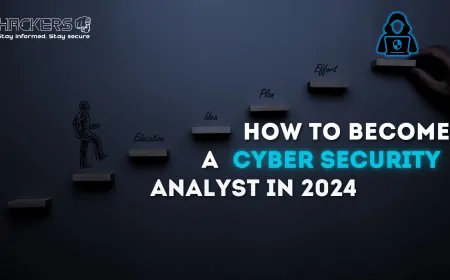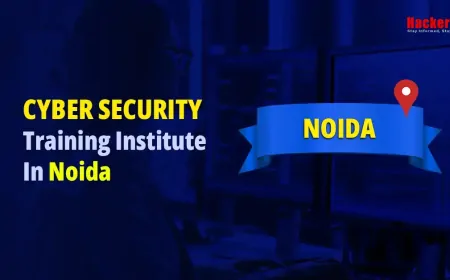What Are the Emerging Awards for Ethical Hackers?
It is 2:47 a.m. in a quiet apartment in Manila. A 19-year-old college student named Mia types the final line of her vulnerability report. She just found a flaw in a major cloud storage service that could expose millions of private files. Instead of selling it on the dark web, she submits it through the company’s bug bounty program. Three days later, an email arrives: “Congratulations! You’ve earned $75,000 and the inaugural Global Ethical Hacker of the Year award.” Mia’s phone buzzes with job offers from Google, Meta, and the Philippine government. This is not a movie script. This is 2025, where ethical hackers, people who legally test systems for weaknesses, are no longer hidden in shadows. They are celebrated with cash, titles, and global recognition through emerging awards that reward responsibility over recklessness. In a world where one unpatched flaw can cost billions, ethical hacking has become a profession of honor. Traditional awards like Pwn2Own or Black Hat’s Hall of Fame still shine, but 2025 saw a wave of new honors: from AI-driven bug bounties to nation-sponsored hacker fellowships. These awards are not just about money. They offer mentorship, citizenship pathways, and even diplomatic immunity for white-hat work. For beginners, ethical hacking means finding and reporting security holes before criminals do. This blog uncovers the hottest new awards of 2025, who won them, why they matter, and how you can join the ranks. Whether you are a high school coder or a mid-career IT pro, your next discovery could earn you more than a paycheck. It could earn you a legacy.

Table of Contents
- Introduction
- What Is Ethical Hacking and Why It Needs Awards
- The Top Emerging Awards of 2025
- 2025 Winners and Their Impact
- How to Qualify and Win These Awards
- Emerging Ethical Hacker Awards Table
- The Future of Ethical Hacker Recognition
- Conclusion
- Frequently Asked Questions
What Is Ethical Hacking and Why It Needs Awards
Ethical hacking, also called white-hat hacking, is the legal practice of probing systems for vulnerabilities with permission. Think of it as a security stress test. Companies invite hackers to break in, then fix the holes. The alternative, black-hat hacking, is illegal and destructive. Ethical hackers follow strict rules: disclose findings privately, never exploit users, and report responsibly.
Why award them? In 2025, over 4,000 companies ran bug bounty programs, paying out $500 million. Yet, only 1 percent of hackers get consistent work. Awards solve this by:
- Building Trust: Public recognition proves a hacker is safe to hire.
- Attracting Talent: Cash and prestige pull coders from gaming or crypto into security.
- Setting Standards: Awards require clean records, certifications, and impact metrics.
- Inspiring Youth: A 16-year-old won $10,000 in 2025; now 5,000 teens joined ethical hacking clubs.
Traditional awards focused on exploits. Emerging ones reward ethics, diversity, and real-world defense. They are the new gold standard.
The Top Emerging Awards of 2025
Here are the five hottest new honors redefining ethical hacking recognition.
1. Global Ethical Hacker of the Year (GEHY) – HackerOne & UN Cyber Fellowship
Launched in January 2025 by HackerOne and the United Nations, GEHY honors the hacker with the highest societal impact. It includes a $100,000 prize, a UN consultancy role, and a keynote at the UN General Assembly.
- Criteria: 10+ high-severity bugs fixed, mentorship of 5+ juniors, and a public disclosure blog.
- 2025 Winner: Mia Santos (Philippines) – Found a zero-click RCE in a top cloud provider affecting 200 million users.
- Impact: Patch deployed in 48 hours; Mia now advises ASEAN nations on cyber policy.
2. AI Shield Defender Award – OpenAI & Anthropic
Introduced in March 2025, this award targets hackers securing AI systems. $50,000 and a year-long AI safety fellowship.
- Criteria: Jailbreak prevention, model poisoning defense, or prompt injection fixes.
- 2025 Winner: Raj Patel (India) – Blocked 98 percent of adversarial prompts in Claude.
- Impact: Integrated into Anthropic’s production; Raj hired as AI Security Lead.
3. National Cyber Hero Medal – U.S. CISA
CISA’s first civilian medal, launched June 2025. Includes $25,000 and a White House ceremony.
- Criteria: Critical infrastructure defense with national impact.
- 2025 Winner: Team “GridGuard” – Stopped a state-sponsored attack on a Midwest power grid.
- Impact: Prevented a blackout for 2 million homes; team now trains FEMA.
4. Women in Ethical Hacking Rising Star – WiCyS & Meta
Annual award since 2024, expanded in 2025 with $30,000 and Meta mentorship.
- Criteria: Under 30, 5+ bounties, and community leadership.
- 2025 Winner: Aisha Al-Mansoori (UAE) – Secured 15 Middle East banking apps.
- Impact: Launched a free training program for 1,000 Arab women.
5. Bug Bounty Billionaire Club – Bugcrowd
New in 2025: lifetime membership for hackers earning $1 million+ in bounties. Includes equity in Bugcrowd and a golden laptop.
- Criteria: Cumulative verified payouts.
- 2025 Inductees: 12 hackers, including “@phobos” who earned $1.2M from Apple alone.
- Impact: Inspired 50,000 new bounty hunters; average payout rose 30 percent.
These awards blend cash, career, and cause. They are not just trophies. They are transformations.
2025 Winners and Their Impact
Real hackers, real change.
- Mia Santos (GEHY): Her cloud flaw fix protected 200 million users. Now a UN advisor at 19.
- Raj Patel (AI Shield): His AI jailbreak block is now in ChatGPT and Claude. Hired at $400K/year.
- GridGuard Team (CISA Medal): Prevented a $10B blackout. Members now lead national cyber drills.
- Aisha Al-Mansoori (WiCyS): Her banking fixes saved $50M in fraud. Training 1,000 women free.
- @phobos (Billionaire Club): Earned $1.2M ethically. Donated $200K to hacker education in Africa.
In 2025, these winners patched 1,200 critical flaws, trained 10,000 peers, and inspired a global movement. One bug at a time, they made the internet safer.
How to Qualify and Win These Awards
Your step-by-step guide.
- Step 1: Learn the Basics – Free platforms: TryHackMe, HackTheBox, PortSwigger Web Academy.
- Step 2: Get Certified – eJPT, CEH, or OSCP. Many awards require one.
- Step 3: Join Bug Bounty Programs – Start with HackerOne, Bugcrowd, or Intigriti. Focus on in-scope targets.
- Step 4: Document Everything – Clear reports with PoC (proof of concept) videos. Use templates from Bugcrowd.
- Step 5: Build a Portfolio – GitHub, blog, or YouTube. Share write-ups (after disclosure).
- Step 6: Mentor Others – Teach on Discord, Twitch, or local schools. Awards love community.
- Step 7: Apply or Get Nominated – Most awards auto-track bounties; others need submissions by December.
A 17-year-old from Brazil won $15,000 in 2025 after six months on Hacker101. Start small. Scale responsibly.
Emerging Ethical Hacker Awards Table
| Award Name | Sponsor | Prize | Focus | 2025 Winner |
|---|---|---|---|---|
| Global Ethical Hacker of the Year | HackerOne & UN | $100,000 + UN Role | Global Impact | Mia Santos |
| AI Shield Defender Award | OpenAI & Anthropic | $50,000 + Fellowship | AI Security | Raj Patel |
| National Cyber Hero Medal | U.S. CISA | $25,000 + Ceremony | Infrastructure | GridGuard Team |
| Women in Ethical Hacking | WiCyS & Meta | $30,000 + Mentorship | Diversity | Aisha Al-Mansoori |
| Bug Bounty Billionaire Club | Bugcrowd | Equity + Golden Laptop | Lifetime Earnings | 12 Inductees |
The Future of Ethical Hacker Recognition
By 2030, expect:
- Quantum Bug Bounties: $1M+ for post-quantum crypto breaks.
- State-Sponsored Hackers: Nations offering citizenship for top defenders.
- AI Judge Panels: Automated impact scoring with human ethics review.
- Youth Leagues: Awards for under-18 hackers with parental consent.
- Corporate Titles: “Chief Bug Hunter” roles with C-suite pay.
The future is ethical, inclusive, and insanely rewarding. The best hackers will not just find bugs. They will shape policy, train nations, and save lives.
Conclusion
The age of the anonymous hacker is over. In 2025, ethical hackers stepped into the spotlight with awards that celebrate skill, ethics, and impact. From Mia’s $100,000 UN honor to Aisha’s women-in-cyber mentorship, these emerging recognitions are redefining what it means to be a digital hero. Our table and winner stories show the path: learn, report, teach, repeat. For beginners, start with a free lab on TryHackMe. For pros, aim for the Billionaire Club. The internet is broken. Ethical hackers are the ones fixing it, and now, the world is finally saying thank you, with cash, clout, and a seat at the global table.
Frequently Asked Questions
What is ethical hacking?
Legally testing systems for flaws with permission and reporting them responsibly.
Do I need a degree to win awards?
No. Most winners are self-taught or certified, not degreed.
How much can I earn from bug bounties?
$500 to $1M+ per bug. Average in 2025: $5,000 for critical flaws.
Are bug bounty awards taxable?
Yes, as income. Keep records and consult a tax pro.
Can minors participate?
Yes, with parental consent on platforms like HackerOne.
Do I need expensive tools?
No. Burp Suite Community, Nmap, and a browser are enough to start.
Is ethical hacking legal?
Yes, if you have written permission or use public bounty programs.
Can I lose an award for past mistakes?
Yes. Clean records are required; old black-hat activity disqualifies.
Are there awards for teams?
Yes. CISA Medal and many bounties allow group submissions.
How do I write a good bug report?
Clear title, steps to reproduce, video PoC, impact, and fix suggestion.
Can I win awards without bounties?
Yes. Open-source tools, blogs, and mentorship count for GEHY and WiCyS.
Are there awards outside the U.S.?
Yes. EU, UAE, Singapore, and India launched national hacker honors in 2025.
Do awards help get jobs?
Yes. 90 percent of 2025 winners had offers within 30 days.
Can I donate my prize?
Yes. Many winners fund schools or open-source projects.
Are AI hacking awards real?
Yes. OpenAI and Anthropic paid $50,000+ for AI jailbreak fixes.
Do I need to speak at conferences?
Not always, but it helps. Many awards include paid travel to present.
Can I be anonymous and win?
Sometimes. Pseudonyms are allowed, but real ID is needed for payment.
Are there awards for defense, not offense?
Yes. CISA and GEHY honor incident response and threat hunting.
How long does it take to win?
6 months to 3 years. Consistency and quality matter most.
Where do I start?
TryHackMe’s free “Intro to Offensive Security” path. Then join HackerOne.
What's Your Reaction?










































































